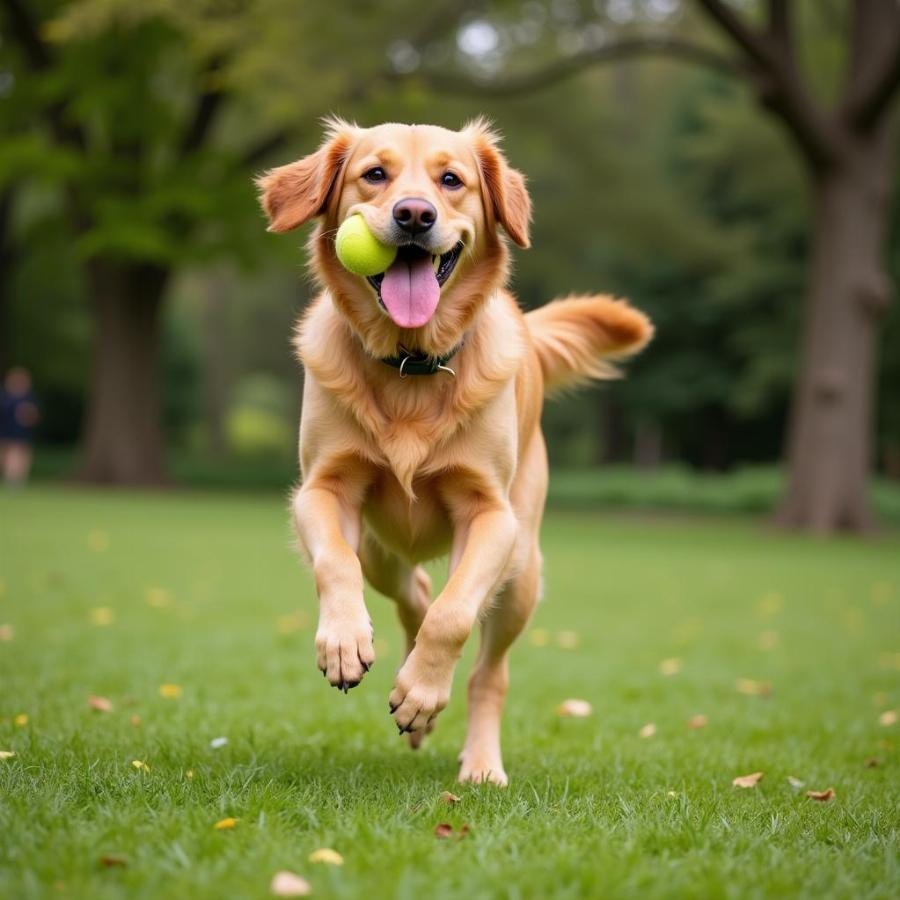The term “horn dog breed” is often used colloquially, but it doesn’t actually refer to a specific breed of dog. It’s essential to understand that this term is a slang phrase, often used humorously, to describe dogs with a high libido or those displaying mating behaviors. While some breeds might have stronger mating instincts than others, associating “horn dog” with a specific breed is inaccurate and perpetuates misconceptions about canine behavior.
Debunking the Myth: It’s About Hormones, Not Breeds
Dogs, like many animals, experience hormonal changes that influence their behavior. Male dogs, in particular, are driven by testosterone, which significantly affects their mating instincts. However, attributing this natural biological process to a specific breed is a vast oversimplification. Instead of focusing on breeds, it’s more accurate and helpful to understand the factors that contribute to a dog’s libido, including:
- Breed Predisposition: While not a defining factor, certain breeds historically bred for specific working roles, like herding or guarding, might display stronger territorial or protective instincts, sometimes mistaken for heightened mating drive.
- Age and Neutering: Intact male dogs experience a surge in testosterone during puberty, leading to increased mating behaviors. Neutering can significantly reduce these behaviors.
- Socialization and Training: Early socialization and consistent training play a crucial role in shaping a dog’s behavior. Proper training can help manage and redirect mating-related behaviors in a positive way.
- Environmental Triggers: The presence of female dogs in heat can trigger strong mating instincts in male dogs. Other environmental factors, such as unfamiliar surroundings or stressful situations, can also influence behavior.
Responsible Ownership: Addressing Mating Instincts in Dogs
Understanding that “horn dog” is not a breed but rather a slang term for a natural biological drive is crucial for responsible dog ownership. Here’s how you can address mating instincts in your canine companion:
- Neutering: Consult with your veterinarian about the appropriate age for neutering your male dog. Neutering can significantly reduce hormone-driven behaviors, making them calmer and less likely to roam or display aggression.
- Training and Socialization: Enroll your dog in obedience classes from a young age. Positive reinforcement techniques can effectively teach your dog appropriate social skills and help manage unwanted behaviors.
- Environmental Management: Be mindful of your dog’s surroundings, especially during walks. If you encounter a female dog in heat, maintain a safe distance to minimize distractions and potential conflicts.
- Provide Outlets for Energy: Regular exercise and mental stimulation are essential for a well-balanced dog. Engage your dog in activities that challenge them physically and mentally, such as puzzle toys, interactive games, and long walks or runs.
Beyond the Myth: Appreciating Dogs for Their Individuality
 Happy Dog Playing Fetch in a Park
Happy Dog Playing Fetch in a Park
Instead of perpetuating the “horn dog breed” myth, let’s focus on appreciating dogs for their unique personalities and the joy they bring to our lives. Every dog, regardless of breed, deserves our understanding, patience, and commitment to providing a loving and supportive environment. By focusing on responsible ownership, positive reinforcement training, and addressing their individual needs, we can help our canine companions lead happy, well-adjusted lives.
Remember, there’s no such thing as a “horn dog breed.” Understanding canine behavior, seeking professional guidance from veterinarians and trainers, and providing a nurturing environment are essential for responsible and fulfilling dog ownership.
FAQs About Dog Mating Behaviors
- At what age do male dogs start exhibiting mating behaviors? Male dogs typically reach puberty between six and twelve months of age, which is when they may begin displaying mating behaviors.
- Is neutering the only way to manage a male dog’s mating instincts? Neutering is highly effective, but training, socialization, and environmental management also play crucial roles in managing mating behaviors.
- Can female dogs display behaviors similar to what people call “horn dog”? Yes, female dogs experience hormonal cycles that influence their behavior. During heat cycles, they may exhibit behaviors aimed at attracting male dogs.
Explore More About Dog Care on Beaut Dogs
Beaut Dogs is your trusted source for all things dog-related, providing reliable and insightful information to help you navigate the wonderful world of dog ownership. For personalized support and expert advice, reach out to us at [email protected]. We’re here to help you and your furry friend thrive!